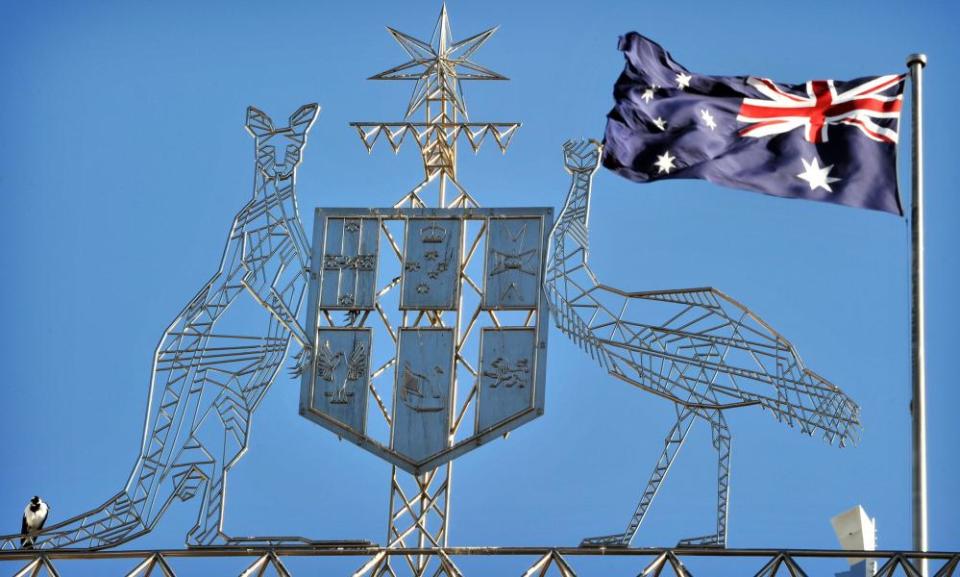‘Stagnant for far too long’: Australia fails to improve its global rating on perceived corruption

Australia has again failed to lift itself from a record low rating on perceived corruption, a new global report has found.
Transparency International on Thursday released its annual corruption perceptions index, a barometer of perceived corruption in 180 nations.
Australia scored 77 from a possible 100 for the third straight year. Australia’s current rating is the lowest since 2012, when a more accurate form of analysis began, and continues a long-term decline since that year.
The score is well above the global average of 43, but remains below Asia-Pacific leaders New Zealand (88) and Singapore (85). New Zealand, tied with Denmark, led the world rankings. South Sudan and Somalia were the worst performers.
Related: Australians trust government to handle Covid but not corruption, report finds
Transparency International used the report to sound a warning of the growing threat of corruption during the Covid-19 crisis.
The report says the pandemic has exposed “enormous cracks in health systems and democratic institutions”, showing that those who held power often served their own interests instead of the most vulnerable.
“As the past tumultuous year has shown, Covid-19 is not just a health and economic crisis but a corruption crisis as well, with countless lives lost due to the insidious effects of corruption undermining a fair and equitable global response,” the report says. “Reports of corruption during Covid-19 have reverberated across the globe.”
Transparency International found the Covid crisis has exposed weaknesses in oversight institutions, caused a shying away from transparency, and increased democratic decline. It found corruption had undermined effective health responses to the pandemic.
“The long-term effects of corruption on healthcare systems remind us that corruption often intensifies the effects of a crisis,” the report says. “Corruption is prevalent across the Covid-19 response, from bribery for Covid-19 tests, treatment and other health services, to public procurement of medical supplies and overall emergency preparedness.
“Our analysis shows that corruption diverts funds from much-needed investment in healthcare, leaving communities without doctors, equipment, medicines, and in some cases, clinics and hospitals.”
In Australia, Transparency International warned of opaque decision-making and questionable public spending as well as the misuse of public funds in the sports rorts scandal as drivers of perceived corruption.
The group also warned of the lack of accountability and transparency surrounding the body designed to guide Australia’s post-pandemic recovery, the National Covid-19 Commission, which has been stacked with corporate leaders, including those from the gas sector.
Related: Proposed federal Icac won't be able to prevent corruption, critics say
Transparency International Australia’s chief executive, Serena Lillywhite, said the relatively high ranking of Australia must not lead to complacency.
“The truth is, after a significant drop our score has remained stagnant for far too long,” she said. “The key lesson from Transparency International’s research is that strong democratic governance is essential to managing an equitable and effective Covid-19 response.”
The lack of progress on a federal anti-corruption commission was also cited by Lillywhite as explanation for Australia’s lack of improvement. The federal integrity commission was put on hold due to the Covid-19 pandemic.
“Transparency International’s global recommendations – strengthening oversight institutions, ensuring open and transparent contracting, promoting civic space and ensuring access to information – are especially relevant for Australia,” Lillywhite said.
Scores are based on perceptions of corruption among experts and business executives. The aggregate score combines 13 surveys and assessments of corruption from a variety of reputable bodies.

 Yahoo Finance
Yahoo Finance 